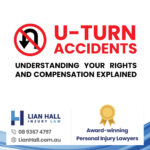Criminal Injuries Compensation: a brief guide
What is the CIC compensation scheme all about?
If a victim of a crime has suffered injuries and then suffers financial losses and has no other way of claiming compensation for their loss, then under specific conditions they might be able to access payments from a state scheme. The Criminal Injuries Compensation Act 2003 establishes a tribunal, the Office of Criminal Injuries Compensation (OCIC), to oversee applications for compensation. OCIC has the statutory authority to receive applications from victims and to then assesses their right to claim and to assess the value of their claim and to then make payments of compensation.
During the 2019/20 financial year:
- OCIC received over 3,600 claims;
- About 1,500 of those claims were made by victims of an assault;
- 5% of the claims related to domestic violence offences;
- About 500 claims were rejected;
- About 2,500 awards of compensation were made;
- The average award made to claimants was a little over $18,000;
- Most claimants were represented by lawyers (56%).
Can you make a claim?
There are some important points to bear in mind when considering making a claim:
- You must be the victim of a criminal offence. That usually means that the criminal offence must have been reported to the Police. You will need to have your Police investigation reference number handy to be able to insert into your claim form.
- The criminal offence must have happened in WA. This is a state scheme and does not cover offences that happened outside of WA.
- You must co-operate with the Police in their investigation.
- You must not have been committing an offence at the same time. That offence may be unrelated to the offence that was the cause of your injuries.
- You must make your claim within 3 years. If you are outside of that 3 year time limit then you will need to make an application for an extension of the time and you must have a good explanation as to why you couldn’t make your claim within 3 years. Generally, not knowing that you could make a claim is not a good excuse for a late claim.
- It goes without saying that you must have suffered injuries and loss. Any award of compensation will be based on an assessment of your injuries and loss.
- The maximum amount of compensation payable is currently $75,000.
How to make a claim
A Claim must be made by completing and submitting the prescribed OCIC claim form.
The claim form can be downloaded at: https://cict.justice.wa.gov.au/_files/criminal_injuries_compensation.pdf
Your claim must be lodged with OCIC. It must be accompanied by all supporting documents. You can lodge your claim documents either by mail, in person, or online through the e-courts portal.
There is no fee payable for submitting a claim.
What can you claim.
You can claim compensation for your bodily injuries, mental shock, pain and suffering and loss of enjoyment of life. In addition victims will usually claim:
- Any lost earnings, including lost overtime or other lost entitlements;
- Treatment expenses;
- Future treatment expenses;
- Travel expenses; and
- Personal property losses, such as damaged clothing.
If after the offence you received compensation from another source then that will be taken into account and deducted from any assessment. For example:
- If you have been paid Workers Compensation or Income Protection payments, then the value of those payments will be taken into account when assessing your claim;
- If your private health insurance has paid for some of your treatment, then you will not be able to recover that amount from OCIC;
- You should also note that Medicare will want to be reimbursed should you recover treatment expenses.
- You should also note that if you have any indebtedness to Centrelink or if you previously been an offender in a matter where there is a recovery, that those amounts may also be taken into account.
What documents to include with your claim form
The most important documents to include with your claim form are:
- Your victim impact statement. Your statement should include details such as:
- Some personal information about you: your age; occupation; any pre-offence health conditions;
- The offence and the circumstances in which it arose;
- How you reported the offence to the Police and what has happened to the Police investigation;
- Details of your injuries;
- Photographs of injuries and especially of any scaring;
- Details of the treatment that you have needed;
- Details of how your injuries have has affected your work and your earnings;
- Details of any expenses that you have incurred;
- An explanation as to why you have no other way of getting paid any compensation.
- Proof of lost earnings:
- You will need to prove that you were employed at the date of or shortly before the offence, and but for the offence would have remained in employment.
- You will also need proof of how much you were being paid, and that after the offence how much income you lost;
- Bear in mind that OCIC will not refund any sick leave entitlements or annual leave;
- It is helpful to get a letter from your employer to set out all of this information;
- It is also necessary to show that it was your injuries that caused you to miss time from work. That usually requires a doctor’s note.
- Treatment expenses:
- You will need a copy of all receipts proving the cost of treatment incurred.
- You can submit the receipts that you have in your possession with your claim documents, but prior to the assessment of your claim you need to ensure that all treatment costs are covered.
- Once your claim is assessed and an award has been made you cannot go back and claim costs that you mistakenly left out.
Why could your claim get rejected?
There are a number of reasons why the OCIC might reject a claim. Most rejections happen because there was no offence reported to the Police. Other reasons why claims have been rejected include:
- The offender was acquitted of the offence;
- The claimant refused to assist the Police in their investigation;
- The offence did not happen in WA;
- The claimant was engaged in a criminal conduct at the time when they suffered the injury;
- The behaviour of the claimant at the time of the offence was questionable, for example the offence happened because the claimant provoked the assault;
- The claimant had already been paid compensation though another scheme such as Workers Compensation;
- The offence happened more than 3 years ago.
There are a number of requirements to comply with before a claim will be assessed in your favour. You should get advice on how best to prepare your claim so that your OCIC Assessor is in the best position to consider your claim.
Legal Costs
OCIC do not award legal costs on top of any assessed compensation. OCIC may in some circumstances reimburse the cost of your disbursements, but you should get advice on this before incurring those expenses. Most people who make claims engage lawyers to help them and for very good reason. But when you engage a lawyer you need to be sure that you understand how you will be charged and be clear on your obligations to pay legal cost. Your lawyer will be happy to discuss this with you before taking on your claim. It is always better to engage a lawyer who has experience in making these types of claims and who can guide you through the process.










